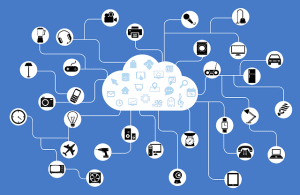 The internet of things (IoT) is a term used to describe the connection of devices (other than traditional computers and smartphones) to the internet. These devices can include anything from refrigerators to cars. While many people see the potential for IoT to make our lives easier, one of the questions that often comes up is how these devices will be monetized. In this blog post, we will explore five different ways that you can make money with your IoT device.
The internet of things (IoT) is a term used to describe the connection of devices (other than traditional computers and smartphones) to the internet. These devices can include anything from refrigerators to cars. While many people see the potential for IoT to make our lives easier, one of the questions that often comes up is how these devices will be monetized. In this blog post, we will explore five different ways that you can make money with your IoT device.
Whether you’re pursuing Iot as a full time job or a side hustle, there are many different opportunities emerging in this fast-paced industry.
Before we get into the specifics of monetizing Iot, let’s review what Iot actually is.
What is The Internet of Things (IoT)?
The Internet of Things (IoT) is a term that is widely used but often undefined. IoT is the network of physical objects, vehicles, buildings, and other items—including those with embedded electronics, software, sensors, and network connectivity—that can collect and exchange data. “Things” can include anything from wearable fitness trackers to smart refrigerators.
The potential for the IoT is tremendous.
Cisco has estimated that the number of devices connected to the internet will grow from about 18 billion in 2015 to 50 billion by 2020. That growth will create opportunities for businesses and individuals alike to interact with objects in new ways and generate previously unimaginable amounts of data. But realizing the full potential of the IoT requires understanding its many components and how they interact.
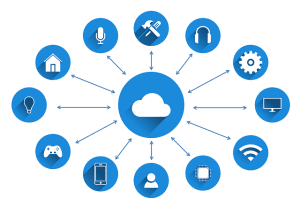 What are the Benefits of IoT for Business?
What are the Benefits of IoT for Business?
In business, there are countless ways in which IoT can be leveraged to improve efficiency, connect with customers, and boost profits.
Some of the biggest benefits of IoT for businesses include:
- Increased efficiency and productivity – Devices that are connected to the internet can communicate with each other and share data. This allows businesses to automate tasks and make processes more efficient.
- Increased customer engagement and loyalty – IoT can be used to collect data about customers and their behavior. This information can then be used to personalize interactions with customers and create a more individualized experience.
- Improved decision-making – With the vast amount of data that IoT devices can collect, businesses can gain insights into trends and patterns that can help them make better decisions.
- Boosted profits – By improving efficiency and increasing customer engagement, businesses can use IoT to improve their bottom line.
The potential for businesses to use IoT to improve their operations and make money is simply incredible.
With that said, there are some challenges that need to be addressed before businesses can fully take advantage of this technology.
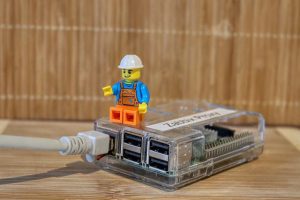 What are the Disadvantages of IoT for Business?
What are the Disadvantages of IoT for Business?
There are a few key disadvantages of IoT for business. Perhaps the most pressing is the potential for data breaches. As devices become more interconnected, the risk of cyberattacks increases. In fact, a study by Intel found that 95 percent of businesses experienced a data breach in 2017.
Another disadvantage is that businesses can quickly become overwhelmed with data. With so many sensors collecting information, it can be difficult to determine which data is important and which can be ignored. Furthermore, sorting through all that data can be costly and time-consuming.
Finally, there is the issue of privacy. As companies collect more and more data about their customers, there is a greater risk that that information will be used improperly or stolen.
Can IoT Make Money?
The answer to this question is yes. There are many issues with IoT that make it difficult for businesses and organizations to turn a profit from the technology, but as IoT continues to evolve there are also a lot of opportunities for it to make more money.
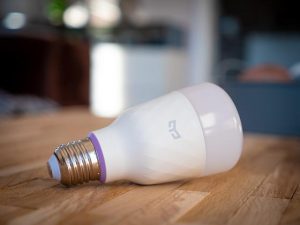 5 Ways to Monetize The Internet of Things (IoT)
5 Ways to Monetize The Internet of Things (IoT)
As the internet of things (IoT) grows, so does the potential for monetization.
Here are five ways companies can make money from the IoT:
1. Sell Data
One of the most valuable assets of the IoT is the data that is generated by connected devices. This data can be sold to third-party companies or used to improve products and services.
2. Offer Subscription Services
Many IoT devices require a subscription in order to function properly. For example, a home security system might need a monthly service in order to receive updates and support.
3. Develop New Products and Services
The IoT provides an opportunity to develop entirely new products and services that wouldn’t be possible without connected devices. For example, a company might create a service that monitors air quality in homes or businesses.
4. Improve Existing Products and Services
The IoT can also be used to improve existing products and services. For example, a retailer could use data from connected devices to improve its inventory management system.
5. Advertise and Market
The IoT can be used to target ads and promotions to specific users. For example, a company might use data from connected devices to show targeted ads to customers who are likely to be interested in its products.
The IoT is still in its early stages, but it holds a lot of promise for businesses and entrepreneurs. By taking advantage of the opportunities it provides, companies can find new ways to monetize their products and services.
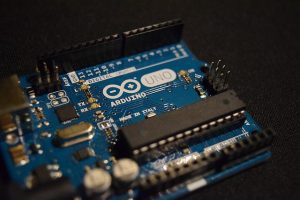 What is the Difference Between IoT and AI?
What is the Difference Between IoT and AI?
IoT and AI are both hot topics in the technology world right now. But what’s the difference between them?
IoT is short for “Internet of Things,” and refers to the growing trend of connecting everyday objects to the internet. This could be anything from a smartwatch to a home security system.
AI, or “artificial intelligence,” is the process of programming computers to do things that normally require human intelligence, such as recognizing objects or understanding natural language.
So what’s the difference between IoT and AI?
In simplest terms, IoT refers to objects that are connected to the internet, while AI refers to machines that can think and learn like humans. IoT is about getting data from physical objects and using it to make our lives easier.
Frequently Asked Questions
Is IoT a good business?
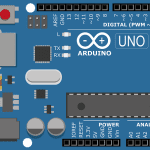
The Internet of Things, or IoT, is a system of interconnected devices and sensors that can collect and share data. While many people believe that IoT is simply a trend that will eventually fade away, there are actually a number of compelling reasons why it represents a good business opportunity. For one thing, IoT provides a way for businesses to gather real-time data about their customers and operations. This data can be used to improve efficiency, optimize resources, and make better decisions. Additionally, IoT devices are becoming increasingly affordable, making it easier for businesses of all sizes to adopt this technology. Finally, as more and more devices become connected, the potential market for IoT applications will only continue to grow. With so many factors working in its favor, it's clear that IoT presents a significant business opportunity.
Is it worth to study IoT?
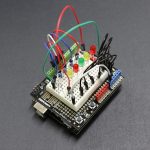
There is no doubt that the IoT is one of the most important technologies of our time. But is it worth your time to study it? The answer to this question depends on your goals and interests. If you want to become a professional IoT developer, then the answer is definitely yes – you need to know everything about this technology. However, if you are not interested in programming and don’t want to become a developer, there is no need to learn about IoT in depth. You can still use it in your projects, but you don’t have to go into all the details.
Is IoT good for the future?
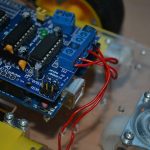
There is no simple answer to the question of whether or not the Internet of Things (IoT) is good for the future. Proponents of IoT argue that it will lead to a more efficient and interconnected world, while skeptics claim that the security risks posed by IoT are too great to be ignored. However, it is possible to analyze the pros and cons of IoT in order to get a better understanding of its potential impact on society. On the positive side, IoT has the potential to make our lives easier and more efficient. For example, imagine if your car could communicate with your home thermostat in order to optimize energy usage. Or imagine if you could track your fitness data via a wearable device and then share it with your doctor. These are just a few examples of how IoT could make our lives easier and more convenient.
Are IoT developers in demand?

As the market for IoT continues to grow, so does the demand for developers who know how to create IoT applications. If you're an experienced developer who wants to transition into IoT development, now is the time to do it. There are many online courses and boot camps that can teach you everything you need to know about developing for the IoT. If you're not a developer, don't worry! There are plenty of opportunities for non-developers in the world of IoT.
What is the average salary of an IoT developer?

IoT developer's salaries can be quite high, depending on the region. In the United States, for example, a senior IoT developer can earn up to $130,000 per year. However, in other parts of the world such as Europe or the Asia Pacific, the salary for an IoT developer is lower. For example, in Germany, a senior IoT developer can expect to earn around €60,000 per year, while in Japan they can expect to earn ¥8 million (approximately $72,000 USD) annually. The average salary for an IoT developer is $100,000 per year. Many companies offer stock options and other benefits. The job outlook for IoT developers is very good.
What are the maintenance issues of IoT?
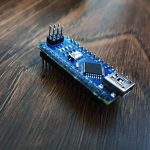
IoT devices are prone to various types of malfunctions and require regular maintenance in order to function properly. In some cases, the malfunction may be due to a software issue, while in other cases it may be a hardware issue. Regardless of the cause, however, it is important for IoT device owners to be aware of the various maintenance issues that can affect their devices. One common type of malfunction that can occur in IoT devices is system crashes. These crashes can be caused by a variety of factors, including software bugs, malware infections, and power outages. When a system crash occurs, it can often result in data loss or even permanent damage to the device. In addition to system crashes, IoT devices can also experience hardware failures.
Is IoT consumable?
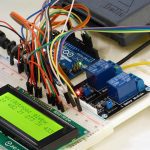
People often talk about the Internet of Things (IoT) as though it's some kind of abstract concept, but the truth is that IoT is already a part of our everyday lives. From the fitness tracker you wear to the smart speaker in your home, IoT devices are becoming more and more commonplace. And as these devices become more sophisticated, they're also becoming more consumable. In other words, people are increasingly willing to use them for tasks that are normally handled by traditional devices. For example, consider the Amazon Echo. This popular device was initially seen as a way to play music and perform basic commands like setting timers and adding items to your shopping list. But over time, people have found more and more uses for it. Today, the Echo can be used to control your lights, check the weather, order a pizza, and much more. In other words, it's become an essential part of many people's lives - and that's precisely what makes it consumable.
What are some of the business case related to IoT?
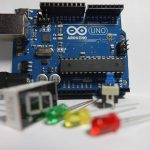
The business case for IoT is pretty clear. By connecting devices and gathering data, businesses can gain valuable insights into how their products are being used, identify areas for improvement, and create new service offerings. For example, a manufacturer could use IoT to track the performance of its products in the field and collect customer feedback. This would allow the company to quickly address any issues that arise and improve the overall quality of its products. Or, a retailer could use IoT to track inventory levels in real-time and automatically reorder items when they get low. This would save the retailer time and money by eliminating the need to manually check stock levels and place orders with suppliers. In short, IoT provides businesses with a way to increase efficiency, reduce costs, and improve customer satisfaction.
Best IoT business model?

There is no one-size-fits-all answer for the best IoT business model. However, there are a few key considerations to keep in mind when choosing a model for your IoT business. First, consider your target market and what types of products or services they would be most interested in. Then, think about how you can best serve that market with your IoT products and services. Another important factor to consider is the cost of deploying and managing your IoT infrastructure. You'll need to make sure that you have enough revenue to cover those costs. Finally, be sure to choose a business model that you feel comfortable with and that you understand well. There's no point in choosing a model that doesn't fit your company's strengths or that you don't understand well enough to execute properly.
Top company that offers IoT
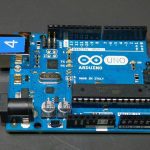
One of the top companies that offer IoT services is Amazon. Amazon has been a leading provider of cloud services for many years, and its AWS platform is well-suited for IoT applications. The company also offers a wide range of connected devices, including the Echo family of products, which can be used to collect data and control devices in the home or office. Microsoft is another major player in the IoT market. The company's Azure platform provides a variety of tools and services that businesses can use to develop their own IoT applications.
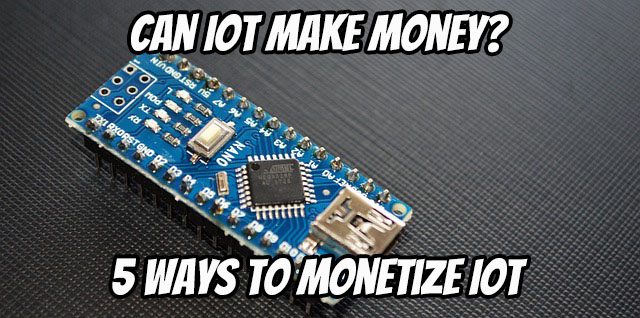
 The Signs You’re Not Valued at Work and What to Do About It
The Signs You’re Not Valued at Work and What to Do About It  10 Tips for Working Away from Home Without Going stir Crazy
10 Tips for Working Away from Home Without Going stir Crazy ![[Beginner's Guide] How to Make a Money Maker Welding Rig](https://theministerofcapitalism.com/blog/wp-content/uploads/2022/08/Beginners-Guide-How-to-Make-a-Money-Maker-Welding-Rig.jpg) [Beginner’s Guide] How to Make a Money Maker Welding Rig
[Beginner’s Guide] How to Make a Money Maker Welding Rig  Do Barbers Make Good Money? 5 Reasons Why Being a Barber Can Be a Successful Career For You
Do Barbers Make Good Money? 5 Reasons Why Being a Barber Can Be a Successful Career For You  The Best Professional Advice I’ve Ever Received – And Other Tips on How to Improve Your Career
The Best Professional Advice I’ve Ever Received – And Other Tips on How to Improve Your Career  Job Creation Smashes Expectations
Job Creation Smashes Expectations